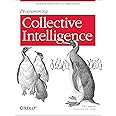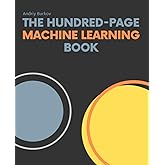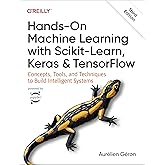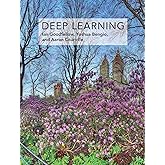
Amazon Prime Free Trial
FREE Delivery is available to Prime members. To join, select "Try Amazon Prime and start saving today with FREE Delivery" below the Add to Cart button and confirm your Prime free trial.
Amazon Prime members enjoy:- Cardmembers earn 5% Back at Amazon.com with a Prime Credit Card.
- Unlimited FREE Prime delivery
- Streaming of thousands of movies and TV shows with limited ads on Prime Video.
- A Kindle book to borrow for free each month - with no due dates
- Listen to over 2 million songs and hundreds of playlists
Important: Your credit card will NOT be charged when you start your free trial or if you cancel during the trial period. If you're happy with Amazon Prime, do nothing. At the end of the free trial, your membership will automatically upgrade to a monthly membership.
Buy new:
-43% $28.66$28.66
Ships from: Amazon.com Sold by: Amazon.com
Save with Used - Good
$6.82$6.82
Ships from: Amazon Sold by: Martin's First Market

Download the free Kindle app and start reading Kindle books instantly on your smartphone, tablet, or computer - no Kindle device required.
Read instantly on your browser with Kindle for Web.
Using your mobile phone camera - scan the code below and download the Kindle app.

Machine Learning for Hackers: Case Studies and Algorithms to Get You Started 1st Edition
Purchase options and add-ons
If you’re an experienced programmer interested in crunching data, this book will get you started with machine learning―a toolkit of algorithms that enables computers to train themselves to automate useful tasks. Authors Drew Conway and John Myles White help you understand machine learning and statistics tools through a series of hands-on case studies, instead of a traditional math-heavy presentation.
Each chapter focuses on a specific problem in machine learning, such as classification, prediction, optimization, and recommendation. Using the R programming language, you’ll learn how to analyze sample datasets and write simple machine learning algorithms. Machine Learning for Hackers is ideal for programmers from any background, including business, government, and academic research.
- Develop a naïve Bayesian classifier to determine if an email is spam, based only on its text
- Use linear regression to predict the number of page views for the top 1,000 websites
- Learn optimization techniques by attempting to break a simple letter cipher
- Compare and contrast U.S. Senators statistically, based on their voting records
- Build a “whom to follow” recommendation system from Twitter data
- ISBN-101449303714
- ISBN-13978-1449303716
- Edition1st
- PublisherO'Reilly Media
- Publication dateMarch 20, 2012
- LanguageEnglish
- Dimensions7 x 0.75 x 9.19 inches
- Print length320 pages
Frequently bought together

Customers who viewed this item also viewed
From the brand

-
Machine Learning, AI & more
-
Machine Learning
-
Artificial Intelligence
-
Deep Learning
-
Language Processing (NLP, LLM)
-

Sharing the knowledge of experts
O'Reilly's mission is to change the world by sharing the knowledge of innovators. For over 40 years, we've inspired companies and individuals to do new things (and do them better) by providing the skills and understanding that are necessary for success.
Our customers are hungry to build the innovations that propel the world forward. And we help them do just that.
Editorial Reviews
About the Author
John Myles White is a PhD candidate in Psychology at Princeton. He studies pattern recognition, decision-making, and economic behavior using behavioral methods and fMRI. He is particularly interested in anomalies of value assessment.
Product details
- Publisher : O'Reilly Media; 1st edition (March 20, 2012)
- Language : English
- Paperback : 320 pages
- ISBN-10 : 1449303714
- ISBN-13 : 978-1449303716
- Item Weight : 1.23 pounds
- Dimensions : 7 x 0.75 x 9.19 inches
- Best Sellers Rank: #1,769,896 in Books (See Top 100 in Books)
- #398 in Machine Theory (Books)
- #743 in Natural Language Processing (Books)
- #1,213 in Computer Hacking
- Customer Reviews:
About the author

Discover more of the author’s books, see similar authors, read book recommendations and more.
Customer reviews
Customer Reviews, including Product Star Ratings help customers to learn more about the product and decide whether it is the right product for them.
To calculate the overall star rating and percentage breakdown by star, we don’t use a simple average. Instead, our system considers things like how recent a review is and if the reviewer bought the item on Amazon. It also analyzed reviews to verify trustworthiness.
Learn more how customers reviews work on AmazonTop reviews from the United States
There was a problem filtering reviews right now. Please try again later.
- Reviewed in the United States on December 12, 2013I enjoyed reading this book.
Pro's:
The text is parsimonious.
The examples are interesting.
The coding is clever.
The book is less expensive and easier to understand than most Springer texts.
Con's:
A substantial part of the code is peripheral tasks; this can be skipped.
Some of the code is out of date.
These Con's are trivial. The book is great. I would buy any other books written by these authors.
- Reviewed in the United States on November 13, 2016This text offers a detailed description in each of 10 case studies about how to build a machine learning solution to the particular problem mentioned. The authors do this in R, and are extensively descriptive about the mechanics of writing R code. If you've never written a computer program, but want to understand how to implement a prewritten machine learning tool in R, this book could be of assistance. However, I'm not sure the authors actually understand the mathematical theory of machine learning; in this book they constantly substitute descriptions of how to select appropriate algorithm parameters with a trial-and-error approach, they do not explain how the algorithms work, and I'm not sure they ever mention the mechanics of "learning" with respect to mathematics. The book has brief passages about machine learning hidden amongst vast chapters about how to read computer directories and load data, etc. Again this book could be useful to the reader who understands ML, but not computer programming.
- Reviewed in the United States on October 2, 2012I learned a little about the R language and how a lot of scientist of physicist use it the write functions to dynamically create graphs to analyze the data they compiled. It also encompasses a lot of the same math you learn in statistics classes which makes sense. I even ended up downloading an R language reference app from the Apple app store to have an object reference of the language.
- Reviewed in the United States on February 20, 2012I started my journey in the machine learning / data mining field thanks to curiosity generated by Toby Segaran's classic Programming Collective Intelligence: Building Smart Web 2.0 Applications. The book by Drew Conway and John White continues in the same excellent tradition. It presents case studies which are interesting enough that you can appreciate them without too much domain knowledge and without getting too deep into technical nitty-gritty. At the same time, the case studies are meaty enough that you can adapt them to real life problems and hack together a quick working prototype in your practice.
By many estimates (and my own experience), 80% of time in machine learning is spent in data cleaning and exploratory data analysis. This book has very good coverage of both areas. Authors use Hadley Wickham's excellent packages viz. ggplot2, plyr and reshape2. If you are doing serious exploratory data analysis in R, these packages are a must and the book does a great job in showing them in action.
The reason I suffixed the review with 'if you know a little R' is that data cleansing requires one to be fairly comfortable with somewhat arcane R syntax. If you don't know any R at all, it would be helpful to get a more gentle introduction - such as R Cookbook (O'Reilly Cookbooks) - before you tackle this book.
In summary, this is an excellent 2nd book on R to have as you try to deploy machine learning in real life.
BTW, if you are looking for 3rd R book, my vote is Data Mining with R: Learning with Case Studies (Chapman & Hall/CRC Data Mining and Knowledge Discovery Series)
- Reviewed in the United States on March 21, 2012By page count, this is primarily a book on R, with some additional time spent on machine learning.
There is way too much time spent on R, dedicated to such things as parsing email messages, and spidering webpages, etc. These are things that no-one with other tools available would do in R. And it's not that it's easier to do it in R, it's actually harder than using an appropriate library, like JavaMail. And yet, while much time is spent in details, like regexes to extract dates (ick!), more interesting R functions are given short shrift.
There's some good material in here, but it's buried under the weight of doing everything in R. If you are a non-programmer, and want to use only one hammer for everything, then R is not a bad choice. But it's not a good choice for developers that are already comfortable with a wider variety of tools.
I'd recommend Programming Collective Intelligence by Segaran, if you would describe yourself as a "Hacker".
Top reviews from other countries
-
 Martin Castillo CabreraReviewed in Mexico on April 13, 2019
Martin Castillo CabreraReviewed in Mexico on April 13, 20195.0 out of 5 stars Temas acordes
Excelente libro
 Sai SampathReviewed in India on December 13, 2017
Sai SampathReviewed in India on December 13, 20175.0 out of 5 stars The book is real good but I wouldn't prefer it if you are new ...
The book is real good but I wouldn't prefer it if you are new to machine learning. You would find it to be real good if have basic knowledge of the subject
-
 CarloReviewed in Italy on May 3, 2017
CarloReviewed in Italy on May 3, 20175.0 out of 5 stars Esauriente
Un buon libro per chi si vuole avvicinare al Machine Learning, il taglio della spiegazione è americano quindi con esempi significativi.
-
 BobobobReviewed in Germany on October 21, 2014
BobobobReviewed in Germany on October 21, 20141.0 out of 5 stars Titel ist vorsätzliche Täuschung
Kann ich nur dringend von abraten. Klare vorsätzliche Täuschung der Titel. Es wir einem nicht erklärt was Machine Learning ist, es wird nur R benutzt die Algorithmen zu berechnen oder zu visualisieren und es wird weder R noch maschinelles Lernen erklärt.
-
 Kosako2007Reviewed in Spain on February 23, 2013
Kosako2007Reviewed in Spain on February 23, 20135.0 out of 5 stars Genial introducción al mundo del Machine Learning
El libro es una muy buena introducción al Machine Learning y los conceptos en los que se basa. Lo recomiendo para todo aquel desarrollador que quiera introducirse en ese mundo.
































